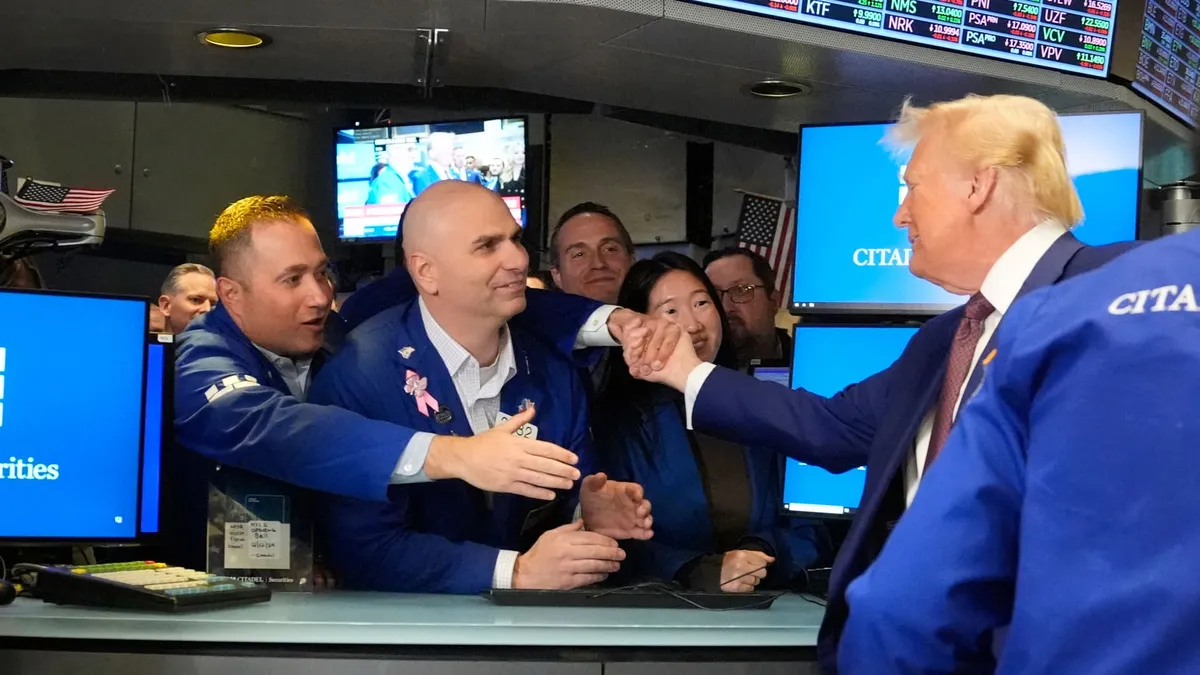
On Wednesday, stock futures took a downturn as investors reacted to news regarding President Donald Trump's decision to impose a 25% tariff on foreign cars. Futures associated with the Dow Jones Industrial Average fell by 120 points, equating to a decline of 0.2%. Similarly, S&P 500 futures decreased by 0.3%, while Nasdaq 100 futures experienced a 0.4% drop.
President Trump had previously indicated his intention to implement auto tariffs ahead of the April 2 deadline for reciprocal tariffs, which he has dubbed "Liberation Day." Since the beginning of his second term in January, Trump has discussed the possibility of imposing duties on countries that have their own tariffs on U.S. imports. On Wednesday, he reaffirmed that his retaliatory tariffs will be a permanent fixture throughout his entire second term.
The announcement had an immediate impact on the stock market, particularly affecting major automotive companies. Shares of General Motors fell by 7% in extended trading following Trump's comments, while Ford stock decreased by 5%. In contrast, Tesla stock saw a modest gain of about 1%.
Trump emphasized the importance of monitoring where car parts are sourced and where final production takes place. He stated that it would be straightforward to ensure that parts made in America would not be subjected to tariffs if the finished product is manufactured elsewhere.
Stocks hit their lowest points of the session on Wednesday after the White House confirmed that Trump would announce the duties on imported cars later that day. This news heightened investor anxiety regarding the potential impact of Trump's retaliatory tariffs on the overall U.S. economy, which is already exhibiting signs of weakness. For instance, a recent report from the Conference Board revealed that consumer confidence dipped to a 12-year low in March, highlighting growing pessimism about economic prospects.
This decline in consumer confidence follows a similarly discouraging reading from the University of Michigan Survey of Consumers for March. Daniel Skelly, Head of Morgan Stanley's Wealth Management market research and strategy team, noted that Wednesday's events served as a reminder that, despite a recent rebound in stocks, volatility persists as policy uncertainty looms.
Furthermore, next week's tariff deadline is expected to serve as a starting point for negotiations rather than a conclusion, which may hinder the market's ability to recover smoothly. Currently, stocks are clinging to marginal gains this week, with the S&P 500 rising approximately 1% and the Nasdaq Composite showing similar performance. The 30-stock Dow has experienced a gain of 1.1% so far this week.
Looking ahead, investors will be attentive to new jobless claims data set to be released on Thursday, followed by the March reading of the personal consumption expenditures price index on Friday. The PCE is regarded as the Federal Reserve's preferred measure of inflation, making it a critical indicator for market participants.